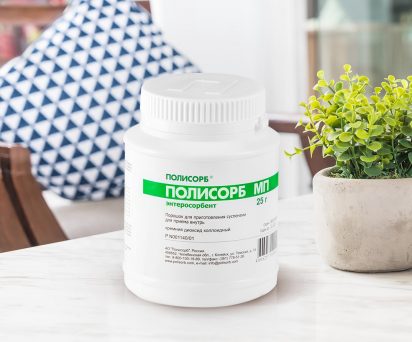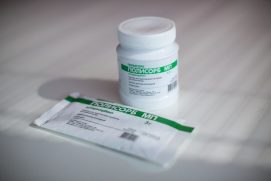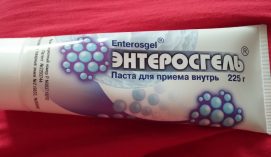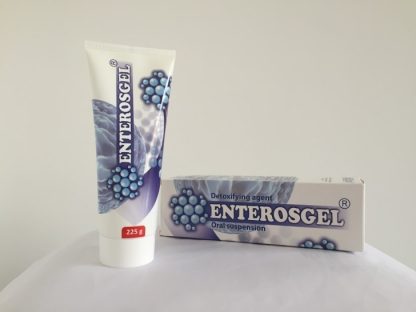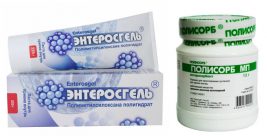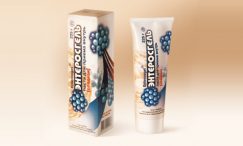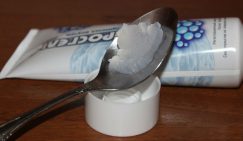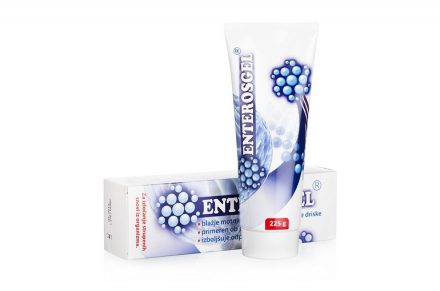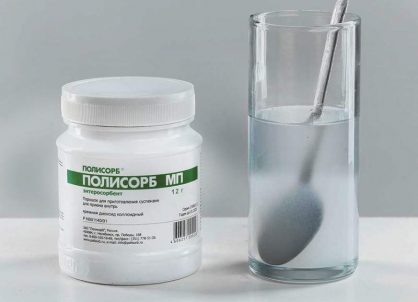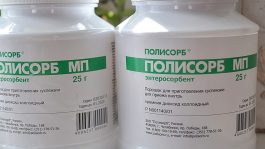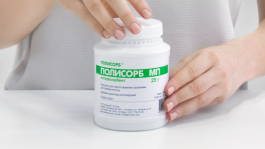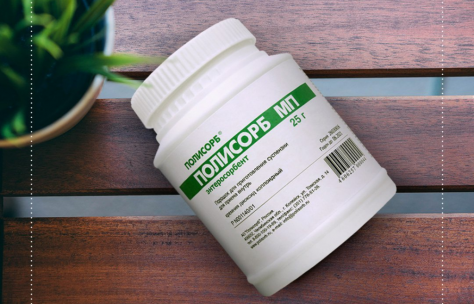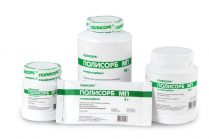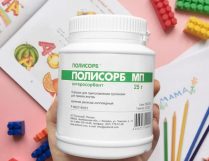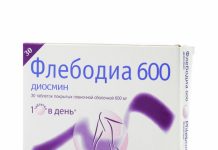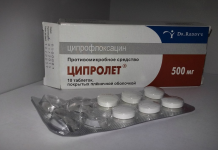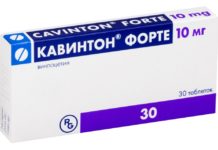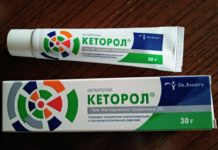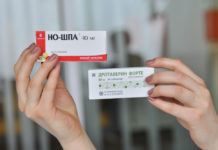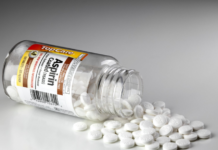With various pathologies of the digestive tract, intestinal infections, poisoning with drugs, poisons, sorbents are prescribed, the action of which is aimed at eliminating toxic substances from the body. Today, the most popular among adsorbing agents are Polysorb, Enterosgel, in connection with which patients often wonder: which is better - Polysorb or Enterosgel.
Material Content:
Comparative characteristics of Polysorb and Enterosgel
Comparison of Enterosgel and Polysorb drugs allows you to determine what is best for poisoning, various intestinal pathologies.
The composition and active substance of the drugs
Polysorb powder for suspension is composed of colloidal silicon dioxide active component. This substance does not penetrate into the circulatory system, does not adversely affect organs and systems. The medication does not contain excipients. After the powder is dissolved, a white suspension forms.
Enterosgel contains one active component polymethylsiloxane polyhydrate. This medication is available in the following types:
- Enterosgel paste;
- Enterosgel in the form of a gel.
The gel-like substance does not contain auxiliary substances. It is represented by a moist, white mass, consisting of lumps of methylsilicic acid, resembling jelly. The paste-like preparation consists of the active component and purified water. The paste has a uniform texture of snow-white, odorless.
On a note! Enterosgel does not require dissolution, it is published ready to use. The medicine should be washed down with clean water.
Indications for use
Considered sorbents have differences in absorbent actions. Enterosgel selectively affects toxins. The active substance of this drug only removes poisons, pathogens. At the same time, useful substances in the form of vitamins, trace elements remain unchanged. Enterosgel restores intestinal microflora. Typically, the medicine is used for the following indications:
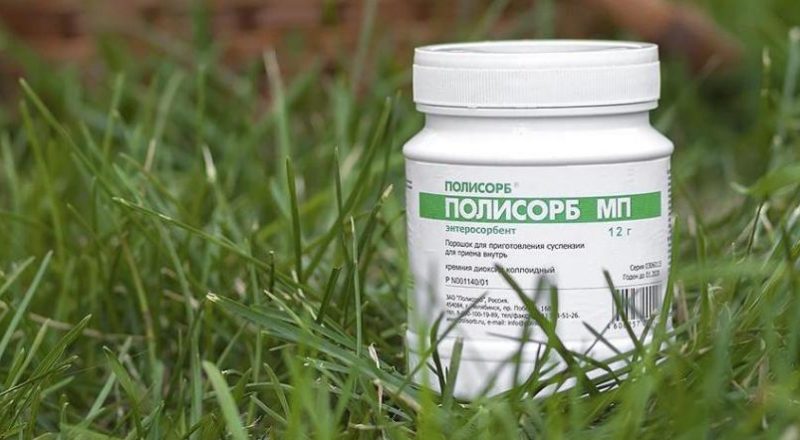
- diarrhea of any nature;
- violation of intestinal microflora;
- dyspeptic disorders;
- gastric ulcer;
- intoxication of various origin;
- kidney dysfunction;
- serious liver disease;
- toxicosis of pregnant women;
- allergic intoxications;
- skin diseases;
- during chemotherapy, radiation treatment of oncology.
Often Enterosgel is used as a prophylaxis of intoxication in people living in adverse environmental conditions, engaged in "harmful" work.
During the administration of Polysorb, proteins bind and are excreted. This sorbent is widely used in case of burn poisoning. Against the background of treatment with this drug, both toxic and useful substances are eliminated, and therefore Polysorb therapy should not exceed 2 weeks. It is usually prescribed for the following indications:
- intestinal infections;
- dysbiosis;
- poisoning;
- allergies
- increased amount of bilirubin in the blood;
- high content of nitrogen compounds;
- dermatoses;
- purulent diseases.
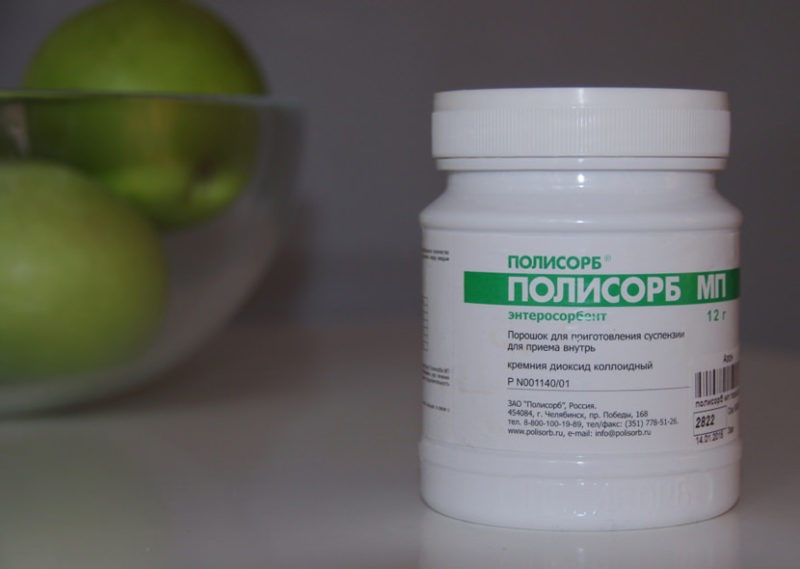 Polysorb is allowed to be used as a complex treatment of acute respiratory viral infections, colds.
Polysorb is allowed to be used as a complex treatment of acute respiratory viral infections, colds.
Note! Before use, Polysorb should be dissolved in water.
Contraindications, side effects
These sorbents, like other drugs, have contraindications for use. Enterosgel is not indicated for use in the following cases:
- with increased sensitivity to the active component;
- with reduced bowel tone.
Polysorb is not indicated for use in the following conditions:
- gastric ulcer;
- gastric bleeding;
- intolerance to the active component.
Enterosgel can be used for gastric diseases, while Polysorb is contraindicated. Since it does not have an enveloping effect, it irritates the gastrointestinal mucosa.
Important! During treatment with sorbents, a large amount of liquid should be consumed. Otherwise, constipation may develop.
These sorbents extremely rarely show side effects. Enterosgel has no adverse reactions from the body. Polysorb may cause the following symptoms:
- constipation;
- nausea
- itchy skin;
- puffiness of the face;
- urticaria.
In addition, impaired absorption of vitamins can become an undesirable reaction on the part of the body to taking Polysorb, against which hypovitaminosis occurs, which manifests itself as reduced immunity, hair loss, and apathy.
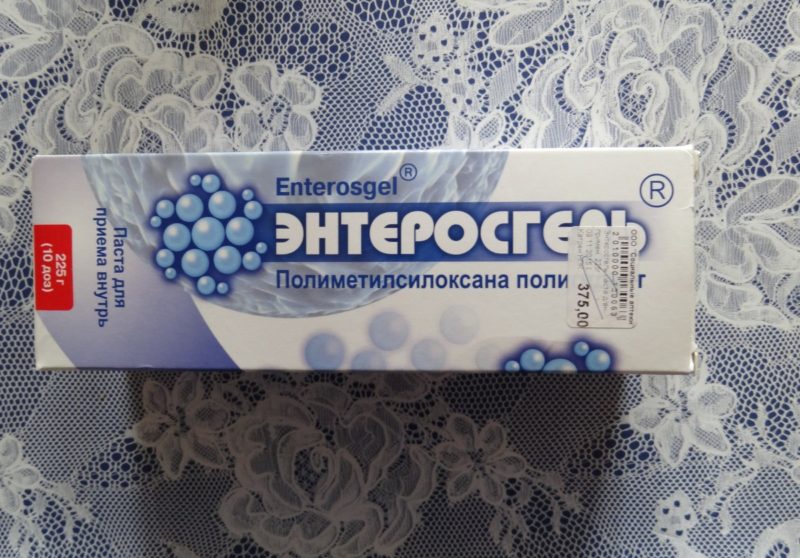 With prolonged use of Polysorb, a violation of the intestinal microflora can form, which is manifested by constipation, diarrhea, vomiting, nausea, heartburn, belching. Often, dysbiosis leads to a decrease in the immune system, causing frequent diseases.
With prolonged use of Polysorb, a violation of the intestinal microflora can form, which is manifested by constipation, diarrhea, vomiting, nausea, heartburn, belching. Often, dysbiosis leads to a decrease in the immune system, causing frequent diseases.
Pregnancy and lactation
Consider adsorbing drugs can be used by women expecting a baby. Since their active components do not penetrate into the circulatory system, they do not cross the placental barrier. Against the background of taking sorbents, toxins are removed from the body of the expectant mother, facilitating the course of pregnancy. This is especially important for viral, colds.
Therapy with these drugs is possible during lactation.However, taking Polysorb, you should monitor the duration of the therapeutic course. His exaggeration can remove the necessary nutrients, vitamins from the body of a woman.
Price Comparison
The price of Polysorb is lower than Enterosgel. On average, in Russia, the first drug costs around 200 rubles, while the second one costs about 500 rubles. In addition, when choosing a medicine, its packaging should be considered. Polysorb can be purchased in a smaller jar, in addition, the powder can be stored after use in a dry, cool place. Enterosgel is available in large packaging, which is usually not fully utilized. The drug dries after a certain period of time.
What is better for children and adults, the opinion of doctors
It is impossible to answer unequivocally which of these drugs is better. The appointment is made based on the patient's condition. But with a weak digestive system, Enterosgel is the best sorbent. If long-term therapy is not required, then Polysorb can be used.
For the treatment of infants, it is better to opt for Enterosgel. Since it is extremely important for the baby to preserve microflora. Otherwise, you can aggravate the condition of the child. Enterosgel removes toxins, leaving nutrients, vitamins, trace elements. Thus, the drug does not harm the baby.
What are the analogues of drugs
Today, the pharmaceutical market has a wide variety of sorbents. In addition to Polysorb, Enterosgel, it is possible to use the following drugs that have a similar effect:
- Smecta;
- Lactofiltrum;
- Polyphepan;
- Activated carbon;
- Enterodesis;
- Filtrum;
- Neosmectin;
- Lignosorba.
Selection of analogues should only be done by a doctor who will accurately take into account the patient’s condition, the presence of contraindications, the number of side effects of the chosen substitute.
Polysorb, Enterosgel are modern sorbents that are widely used in poisoning, intestinal diseases.


